YHVH's Calendar
Worshipping the Father His Way on His Days
Table of Contents
Calendar Overview
Our Father’s calendar works on a different schedule than the Gregorian calendar we use today.
- Each Biblical year starts in the Spring on Wednesday following the Spring Equinox, usually in March or April on the Gregorian calendar.
- Each year consists of 364 days.
- These 364 days are divided up into 4 seasons (Spring, Summer, Fall and Winter).
- Each season has 3 months of 30 days each, followed by an intercalary day, for a total of 91 days per season.
- Each week has 7 days, starting on Day 1 (Sunday).
- The 7th Day of the week (Saturday) is the Sabbath – a day of rest where no laborious work is permitted.
- Each day starts at dawn and lasts until the following dawn, approximately 24 hours later.
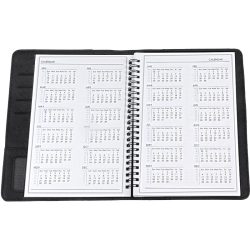
How YHVH's Calendar Works
The Biblical Calendar (often referred to as the Zadok Calendar) ordained by YHVH is actually very easy to follow.
The first thing to do is to establish when the year begins. There are a number of methods used to determine this, but this method is by far the easiest (and it’s the one used by most followers observing this calendar).
Each year is started at the time of the Spring Equinox on the 4th Day of the week (Wednesday on a Gregorian calendar) – the day YHVH created the sun, moon and stars and set them in order to tell the days and seasons.
- If the Spring Equinox is on the 4th Day of the week (Wednesday), then the year starts on that day.
- If the Spring Equinox is on a different day of the week, then the year starts on the first “4th Day of the week (Wednesday)” immediately following the Spring Equinox.
Once you have established the start of the year, you can begin counting out the months of the year, observing any appointed days (mo’edim – see below) that occur during the year.
1st Season – Spring
- 1st Month = 30 Days
- 2nd Month = 30 Days
- 3rd Month = 30 Days
- 1 Intercalary Day
2nd Season – Summer
- 1st Month = 30 Days
- 2nd Month = 30 Days
- 3rd Month = 30 Days
- 1 Intercalary Day
3rd Season – Fall
- 1st Month = 30 Days
- 2nd Month = 30 Days
- 3rd Month = 30 Days
- 1 Intercalary Day
4th Season – Winter
- 1st Month = 30 Days
- 2nd Month = 30 Days
- 3rd Month = 30 Days
- 1 Intercalary Day
When the year is over, you should be within 1 week of the Spring Equinox and ready to start again!
Calendar Details
Click any of the topics below for more details including what the scriptures have to say about the topic, what the Torah requirements are for observing each topic, as well as pertinent Jewish (man-made) traditions associated with the topic.

Biblical Day
From Dawn Until the Following Dawn
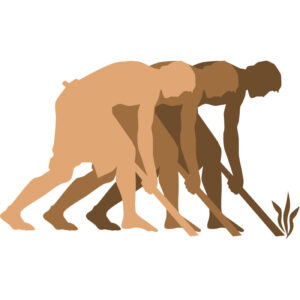
Biblical Week
7 Days Ending on the Sabbath

Weekly Sabbath
From Dawn on the 7th Day Until Dawn the Following Day

Biblical Month
30 Days Separated by an Intercalary Day Every 3 Months

Head of the Month
First Day of Each Month

Biblical Year
364 Days Starting at the Time of the Spring Equinox
YHVH's Appointed Days (Mo'edim)
Rather than observing the holidays of the world, steeped in pagan rituals and traditions, the assembly of YHVH is called to observe His appointed days, or “mo’edim”.
- Leviticus 23:1-2 And YAHWEH spoke to Moses, saying, Speak to the sons of Israel, and you shall say to them, The set feasts of YHVH which you shall proclaim as holy gatherings, shall be these: These are My appointed feasts:
There are 7 yearly mo’edim that we are required to observe in the Torah. Click on any of the mo’edim topics below for more details.
Spring Mo'edim

Passover (Pesach)
14th Day of the 1st Month

Feast of Unleavened Bread 5783
15th Day through the 21st Day of the 1st Month

Firstfruits 5783
26th Day of the 1st Month

Feast of Weeks (Shavuot) 5783
15th Day of the 3rd Month
Fall Mo'edim
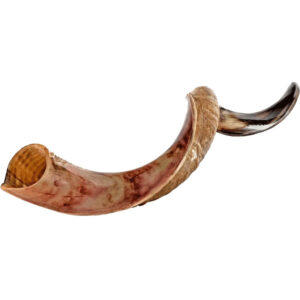
Day of Trumpets (Yom Teruah) 5784
1st Day of the 7th Month
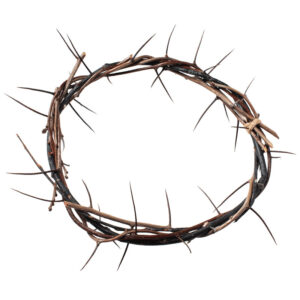
Day of Atonement (Yom Kippur) 5784
Evening of the 9th Day through the 10th Day of the 7th Month
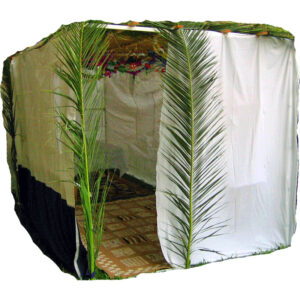
Feast of Tabernacles (Sukkot) 5784
15th Day through the 23rd Day of the 7th Month
Brief History of the Calendars
The original solar-oriented calendar, sometimes called the Zadok calendar (because it was used by the Zadok Levitical priests during the time of King David) or Enochian calendar (because it is found in the 1st Book of Enoch), was designed by YHVH and used by the Biblical patriarchs. This calendar consisted of a 364-day year starting each year at the time of the Spring Equinox on a Wednesday (the 4th Day of creation). Most of the information we have regarding how this calendar was kept is found in the 1st Book of Enoch and the Book of Jubilees. And while it is not explicitly explained in the books of the Bible (the Bible was written by people who already knew and understood how the calendar worked), this calendar is consistent with YHVH’s appointed times (mo’edim) and seasons as described throughout the entire canon of the Bible.
This calendar was used by the Hebrew people up until the time when the Northern Kingdom of Israel was conquered by the Assyrians and the Southern Kingdom of Judah went in to captivity in Babylon. The people of the Northern Kingdom were assimilated by the countries they were dispersed into, and eventually lost track of following YHVH’s original calendar altogether. On the other hand, the Jewish people of the Southern Kingdom kept the original calendar, but adopted many Babylonian traditions and began changing the way they kept the calendar. Babylonian names were given to the months of the year and the 24-hour “dawn to dawn” day period was changed to an “evening to evening” day period.
In 46 BC, about 40 years before our Messiah Yeshua walked the Earth, the Roman Empire instituted a new calendar system called the Julian calendar. This calendar made it nearly impossible to determine when the appointed days (mo’edim) of YHVH were to be observed each year. The 365-day Gregorian calendar we use today is simply a refinement of that calendar, authorized by Pope Gregory in 1582 AD.
However, in order to properly observe all of YHVH’s appointed times (mo’edim), the Jewish people continued to use the slightly modified (due to Babylonian influence) original calendar given to the patriarchs up until around 359 AD. At that time, the Jewish sage Hillel II developed a new Jewish calendar that is luni-solar-oriented, relying on the sighting of a new moon to indicate the start of each month. This is the calendar that is used by Jewish people around the world today.
YHVH's Calendar in the Book of Genesis
Genesis 1:14 And Elohim said, Let light sources be in the expanse of the heavens, to divide between the day and the night. And let them be for signs and for seasons (Mow`ed), and for days and years.
Genesis 1:15 And let them be for light sources in the expanse of the heavens, to give light on the earth. And it was so.
Genesis 1:16 And Elohim made the two great light sources the great light to rule the day, and the small light and the stars to rule the night.
Genesis 1:17 And Elohim set them in the expanse of the heavens, to give light on the earth,
Genesis 1:18 and to rule over the day and over the night; and to divide between the light and the darkness. And Elohim saw that it was good.
Genesis 1:19 And there was evening, and there was morning, day four.
YHVH's Calendar in the Book of Exodus
Exodus 12:1 And YAHWEH said to Moses and to Aaron in the land of Egypt, saying,
Exodus 12:2 This month shall be the head of months for you. It shall be the first of the months of the year for you.
YHVH's Calendar in the 1st Book of Enoch
Enoch 72:1 The book of the courses of the luminaries of the heaven, the relations of each, according to their classes, dominion, and their seasons, according to their names, places of origin, and their months: which Uriel, the holy angel, who was with me, showed me. He showed me exactly how the astrological laws work in regard to all the years of the world, till the new creation is made which endures for all eternity.
Enoch 72:2 And this is the first law of the luminaries: the luminary, the sun, has its rising in the eastern constellations of the heaven, and its setting in the western constellations of the heaven.
Enoch 72:3 And I saw six constellations in which the sun rises, and six constellations in which the sun sets. And the moon rises and sets in these constellations, and the brightest stars and how they connect to the lesser stars: six in the east and six in the west, and all following each other in accurately corresponding order; also many decans (windows or portals) to the right and left of these constellations.
Enoch 72:4 First there goes forth the great luminary, named the sun, and his circumference is like the circumference of the heaven, and he is quite filled with illuminating and heating fire.
Enoch 72:5 The chariot on which he ascends, the [solar] wind drives, and the sun goes down from the heaven and returns through the north in order to reach the east, and is so guided that he comes to the appropriate constellation and shines in the face of the heaven.
Enoch 72:6 In this way he rises in the first month [Nisan] in the great constellation [Aries], which is the fourth of those six constellations in the east.
Enoch 72:7 In that fourth constellation from which the sun rises in the first month are twelve decans (windows or portals), from which proceed a flame when they are opened in their season.
Enoch 72:8 When the sun rises in the heaven, he comes out of that fourth constellation thirty mornings in succession, and sets accurately in the constellation in the west of the heaven.
Enoch 72:9 During this period the day is daily lengthened and the night nightly shortened to the thirtieth morning.
Enoch 72:10 On that day the day is two parts longer than the night; the day amounts to exactly ten parts day and eight parts night.
Enoch 72:11 Then the sun rises from that fourth constellation, and sets in the fourth and returns to the fifth portal of the east thirty mornings, and rises from it and sets in the fifth constellation.
Enoch 72:12 From then on, the day becomes longer by two parts and amounts to eleven parts day, and the seven parts night.
Enoch 72:13 Then it returns to the east and enters into the sixth constellation, and rises and sets in the sixth constellation thirty-one mornings on account of its sign.
Enoch 72:14 On that day the day becomes longer than the night, and the day becomes double the night, twelve parts day and six parts night.
Enoch 72:15 The sun is set up to make the day shorter and the night longer, and the sun returns to the east and enters into the sixth constellation, and rises and sets from it thirty mornings.
Enoch 72:16 And when thirty mornings are accomplished, the day decreases by exactly one part, eleven parts day and seven parts night.
Enoch 72:17 And the sun goes forth from that sixth constellation in the west, and goes to the east and rises in the fifth constellation for thirty mornings, and sets in the west again in the fifth western constellation.
Enoch 72:18 On that day the day decreases by two parts, ten parts day and eight parts night.
Enoch 72:19 And the sun rises from that fifth constellation and sets in the fifth constellation of the west, and rises in the fourth constellation for thirty-one mornings on account of its sign, and sets in the west.
Enoch 72:20 On that day the day is equal with the night, nine parts day and nine parts night.
Enoch 72:21 And the sun rises from that constellation and sets in the west, and returns to the east and rises thirty mornings in the third constellation and sets in the west in the third constellation.
Enoch 72:22 On that day the night becomes longer and the day shorter, till the thirtieth morning when it is eight parts day and ten parts night.
Enoch 72:23 And the sun rises from that third constellation and sets in the third constellation in the west and returns to the east, and for thirty mornings rises in the second constellation in the east, and in like manner sets in the second constellation in the west of the heaven.
Enoch 72:24 That day is seven parts day and eleven parts night.
Enoch 72:25 And the sun rises on that day from that second constellation and sets in the west in the second constellation, and returns to the east into the first constellation for thirty-one mornings, and sets in the first constellation in the west of the heaven.
Enoch 72:26 And on that day the night becomes so long that it is double the day: six parts day and twelve parts night.
Enoch 72:27 Then the sun has completed its cycle of constellations and repeats the cycle again, and enters that portal thirty mornings and sets also in the west opposite to it.
Enoch 72:28 And on that night has the night decreased in length by one part; seven parts day and eleven parts night.
Enoch 72:29 Then the sun returns and enters into the second constellation in the east, and returns to his course for thirty mornings, rising and setting.
Enoch 72:30 And on that day the night decreases in length, eight parts day and ten parts night.
Enoch 72:31 And on that day the sun rises from the second constellation, and sets in the west, and returns to the east, and rises in the third constellation for thirty-one mornings, and sets in the west of the heaven.
Enoch 72:32 On that day the night decreases to nine parts day and nine parts night, and the night is equal to the day and the year is exactly three hundred and sixty-four days long.
Enoch 72:33 And the length of the day and of the night, and the shortness of the day and of the night ― by the course of the sun they change.
Enoch 72:34 So the course of the sun causes the day to become longer and the night shorter.
Enoch 72:35 This is the law and the course of the sun, and his return, as often as he returns, is sixty times and rises and sets, the great luminary which is called the sun, forever.
Enoch 72:36 That which rises is the great luminary, and is so named according to its appearance, according as the Lord commanded.
Enoch 72:37 Thus he rises, and sets, and is not decreased, and does not rest, but runs day and night, and his light is sevenfold stronger than that of the moon; but as regards size, they are both equal.
Enoch 73:1 After this law I saw another law dealing with the smaller luminary, which is called the moon.
Enoch 73:2 And her circumference is like the circumference of the heaven, and her chariot in which she rides is driven by the [solar?] wind, and a measure of light is given to her.
Enoch 73:3 Every month her rising and setting changes, and her days are like the days of the sun. And when her light is uniform [full] it amounts to the seventh part of the light of the sun. And thus she rises.
Enoch 73:4 Her first phase in the east comes forth on the thirtieth morning; and on that day she becomes visible, and constitutes for you the first phase of the moon on the thirtieth day together with the sun in the portal where the sun rises.
Enoch 73:5 The one half of her goes forth by a seventh part, and her whole circumference is empty, without light, with the exception of one-seventh part of the fourteenth parts of light.
Enoch 73:6 When she receives one-seventh part of the half of her light, her light amounts to one-seventh part and the half thereof, she sets with the sun.
Enoch 73:7 When the sun rises and the moon rises with him and receives the half of one part of light, and in that night in the beginning of her morning [new moon] the moon sets with the sun, and is invisible that night with the fourteen parts and the half of one of them.
Enoch 73:8 And she rises on that day with exactly a seventh part, and comes forth and recedes from the rising of the sun, and in her remaining days she becomes bright in the remaining thirteen parts.
Enoch 74:1 I saw another course, a law for her, how according to that law she performs her monthly revolution.
Enoch 74:2 And all these Uriel, the holy angel who is the leader of them all, showed me all things; and I wrote down all their positions as he showed them to me. And I wrote down their months as they were, and the appearance of their lights till fifteen days were completed.
Enoch 74:3 In seven single parts she completes all her light in the east, and in seven single parts completes all her darkness in the west.
Enoch 74:4 In certain months she alters her settings, and in certain months she pursues her own peculiar course.
Enoch 74:5 In two months the moon sets with the sun, in those two middle constellations, the third and fourth constellations.
Enoch 74:6 She goes forth for seven days, and turns about and returns again through the portal where the sun rises, and completes all her light; and she recedes from the sun, and in eight days enters the sixth constellation from which the sun goes forth.
Enoch 74:7 When the sun comes out from the fourth constellation, she goes forth seven days, until she goes forth from the fifth and turns back again in seven days into the fourth constellation and completes all her light; and she recedes and enters into the first constellation in eight days.
Enoch 74:8 She returns again in seven days into the fourth constellation from which the sun goes forth.
Enoch 74:9 Thus I saw their positions, the sun and moon rising and setting according to the order of their months.
Enoch 74:10 If five years are taken together, the sun has an excess of thirty days, and all the days for one of those five years, when they are full, amount to three hundred and sixty-four days.
Enoch 74:11 The excess of the sun and of the stars amounts to six days. In five years six days per year comes out to be thirty days; and the moon falls behind the sun and stars thirty days.
Enoch 74:12 The sun and the stars bring in all the years exactly, so that they do not advance or delay their position by a single day unto eternity; but complete the years with perfect justice in 364 days.
Enoch 74:13 In three years there are 1,092 days, and in five years 1,820 days, so that in eight years there are 2,912 days.
Enoch 74:14 For the moon alone, three years amounts to 1,062 days, and in five years she falls fifty days behind the sun, to the sum of these are added sixty-two days.
Enoch 74:15 In five years there are 1,770 days, so that in eight years the days of the moon will amount to 2,832 days.
Enoch 74:16 In eight years she falls behind the sun eighty days; all the days she falls behind in eight years are eighty.
Enoch 74:17 The year is accurately completed in conformity with their stations and the stations of the sun, which rise from the constellations through which they rise and set thirty days.
Enoch 75:1 The leaders of the heads of the thousands, who are placed over the whole creation and over all the stars, have also to do with the four intercalary days, being inseparable from their office, according to the reckoning of the year; and these render service on the four days which are not counted in the reckoning of the year.
Enoch 75:2 On their account men make a mistake in them, for these luminaries truly serve on the stations, one in the first constellation, one in the third constellation, one in the fourth constellation, and one in the sixth constellation; and the exactness of the year is accomplished through its separate three hundred and sixty-four stations.
Enoch 75:3 For the signs, times, years, and days the angel Uriel showed to me, whom the Lord of Glory has set forever over all the luminaries of the heaven, in the heaven and in the world, that they should rule on the face of the heaven and be seen on the earth, and be leaders for the day and the night, (the sun, moon, and stars, and all the ministering creatures which make their revolution in all the chariots of the heaven).
Enoch 75:4 Uriel also showed me twelve doors open in the circuit of the sun’s chariot in the heaven, through which the rays of the sun break forth, and from them is warmth diffused over the earth, when they are opened at their appointed seasons.
Enoch 75:5 There are also some for the winds and the spirit of the dew when they open at times, standing open in the heavens at the ends.
Enoch 75:6 As for the twelve constellations in the heaven, at the ends of the earth, out of which go forth the sun, moon, and stars, and all the works of heaven in the east and in the west,
Enoch 75:7 there are many decans (windows or portals) open to the left and right of them. And one decan comes at its appointed season (the one that produces warmth), corresponding (as these do) to those constellations from which the stars come forth according as He has commanded them, and wherein they set corresponding to their number.
Enoch 75:8 I saw chariots in the heaven, running in the world, above those constellations in which revolve the stars that never set.
Enoch 75:9 And one is larger than all the rest, and it is that which makes its course through the entire world.
Enoch 78:1 The names of the sun are these: the first Orjares [shining], and the second Tomas [heat].
Enoch 78:2 The moon has four names: the first name is Asonja, the second Ebla, the third Benase, and the fourth Erae.
Enoch 78:3 These are the two great luminaries. Their circuit is like the circuit of the heaven, and they are the same size.
Enoch 78:4 In the circuit of the sun there are seven portions of light which are added to it more than to the moon, and in definite measures it is transferred till the seventh portion of the sun is exhausted.
Enoch 78:5 They set and enter the constellations of the west, and make their revolution by the north, and come forth through the eastern constellations on the face of the heaven.
Enoch 78:6 When the moon rises, one-fourteenth part appears in the heaven. On the fourteenth day she completes her light.
Enoch 78:7 And fifteen parts of light are transferred to her till the fifteenth day when her light is completed, according to the sign of the year, and she becomes fifteen parts, and the moon grows by the addition of fourteenth parts.
Enoch 78:8 On the first day of her waning, she decreases to fourteen parts of her light, on the second to thirteen parts of light, on the third to twelve, on the fourth to eleven, on the fifth to ten, on the sixth to nine, on the seventh to eight, on the eighth to seven, on the ninth to six, on the tenth to five, on the eleventh to four, on the twelfth to three, on the thirteenth to two, on the fourteenth to the half of a seventh, and all her remaining light completely disappears on the fifteenth.
Enoch 78:9 And in certain months the month has twenty-nine days, and once twenty-eight.
Enoch 78:10 And Uriel showed me another law: when light is added to the moon, and on which side it is added to her by the sun.
Enoch 78:11 During all the period in which the moon is growing in her light, she increases it to herself opposite the sun, till on the fourteenth day her light is completed in the heaven; and when she is fully illumined, her light is completed in the heaven.
Enoch 78:12 On the first day she is called the new moon, for on that day the light rises upon her.
Enoch 78:13 She becomes a full moon exactly on the day when the sun sets in the west, and from the east she rises at night, and the moon shines the whole night through till the sun rises opposite her and the moon is seen opposite the sun.
Enoch 78:14 On the side whence the light of the moon comes forth, there again she wanes till all the light vanishes and all the days of the month are at an end, and her circumference is empty, void of light.
Enoch 78:15 Three months she makes thirty days in her time, and three months she makes twenty-nine days each, in which she completes her waning in the first period of time, and in the first portal for one hundred and seventy-seven days.
Enoch 78:16 In the time of her departure she appears for three months of thirty days each, and for three months she appears for twenty-nine days each.
Enoch 78:17 At night she appears like a man for twenty days each time, and by day she appears like the heaven, and there is nothing else in her except her light.
Enoch 79:1 “Now, my son Methuselah, I have shown you everything, and the law of all the stars of the heaven is completed.”
Enoch 79:2 He showed me all the laws of these for every day, season, government, and year, and for its going forth, and for the order prescribed to it every month and every week:
Enoch 79:3 the waning of the moon which takes place in the sixth portal, for in this sixth portal, her light is accomplished, and after that there is the beginning of the month.
Enoch 79:4 The waning which takes place in the first portal, in its season, till one hundred and seventy-seven days are completed, reckoned according to weeks, twenty-five weeks and two days.
Enoch 79:5 According to the law of the stars, the moon falls behind the sun exactly five days in the course of one period, and when you see this, its course will be completed.
Enoch 79:6 This is the picture and sketch of each luminary which Uriel the archangel, who is their leader, showed me.
Enoch 80:1 In those days the angel Uriel answered and said to me, “Behold, I have shown you everything, Enoch, and I have revealed everything to you that you should see in this sun and this moon, and the leaders of the stars of the heaven and all those who turn them, their tasks and times and departures.
Enoch 80:2 In the days of the sinners the years will be shortened, and their seed will be tardy on their lands and fields, and all things on the earth will alter, and will not appear in their time; and the rain will be kept back and the heaven will retain it.
Enoch 80:3 In those times the fruits of the earth will be tardy, and will not grow in their time, and the fruits of the trees will be withheld in their time.
Enoch 80:4 The moon’s order will be altered, and not appear at her proper time.
Enoch 80:5 In those days the sun will be seen and he will journey in the evening on the extremity of the great chariot in the west and will shine more brightly.
Enoch 80:6 Many chiefs of the stars of command will err; these will alter their orbits and tasks, and not appear at the seasons prescribed to them.
Enoch 80:7 The whole order of the stars will be concealed from the sinners, and the thoughts of those on the earth will err concerning them, and they will be altered from all their ways, and they will err and consider them to be gods.
Enoch 80:8 Evil will increase upon them, and punishment will come upon them to destroy all.”
Enoch 82:1 Now, my son Methuselah, all these things I have recounted and written down for you! I have revealed to you everything, and given you books concerning all these. So preserve, my son Methuselah, the books from your father’s hand, and see that you deliver them to the generations of the world.
Enoch 82:2 I have given wisdom to you, and to your children, and those who will be your children, that they may give it to their children for generations; this wisdom that surpasses their understanding.
Enoch 82:3 Those who understand it will not sleep, but will listen with the ear that they may learn this wisdom, and it will please those that eat thereof better than good food.
Enoch 82:4 Blessed are all the righteous. Blessed are all those who walk in the way of righteousness and sin not as the sinners, in the reckoning of all their days in which the sun traverses the heaven, entering into and departing from the portals for thirty days with the heads of thousands of the order of the stars, together with the four which are intercalated which divide the four portions of the year, which lead them and enter with them four days.
Enoch 82:5 Owing to them, men will be at fault and not reckon them in the whole reckoning of the year; but men will be mistaken, and not recognize them accurately.
Enoch 82:6 For they belong to the reckoning of the year and are truly recorded forever, one in the first portal and one in the third, and one in the fourth and one in the sixth, and the year is completed in three hundred and sixty-four days.
Enoch 82:7 This account is accurate and the recorded reckoning thereof exact; for the luminaries, and months and festivals, and years, and days; and Uriel has shown and revealed to me, to whom the Lord of the whole creation of the world has subjected the host of heaven.
Enoch 82:8 He has power over night and day in the heaven to give the light: the sun, moon, stars, and all the powers of the heaven, which revolve in their circuits.
Enoch 82:9 These are the orders of the stars, which set in their places, and in their seasons, festivals, and months.
Enoch 82:10 These are the names of those who lead them, who watch that they enter at their times, in their orders, in their seasons, in their months, in their periods of dominion, and in their positions.
Enoch 82:11 Their four leaders who divide the four parts of the year enter first; and after them the twelve leaders of the orders who divide the months; and for the three hundred and sixty-four days, together with the heads over thousands who divide the days, and for the four intercalary days there are the leaders which separate the four parts of the year.
Enoch 82:12 Of these heads over thousands, one is placed between the leader and the led, each behind a station, but their leaders make the division.
Enoch 82:13 These are the names of the leaders who divide the four parts of the year which are ordained: Melkiel, Helemmelek, and Meleial, and Narel.
Enoch 82:14 The names of those whom they lead: Adnarel, and Iyasusael, and Iyelumiel. These three follow the leaders of the orders, and there is one who follows the three leaders of the orders which follow those leaders of stations that divide the four parts of the year.
Enoch 82:15 In the beginning of the year Melkiel rises first and rules, who is called Tamaani. And the sun, and all the days of his dominion while he bears rule, are ninety-one days.
Enoch 82:16 And these are the signs of the days which are to be seen on earth in the days of his dominion: sweat, and heat, and calm; and all the trees bear fruit, and leaves are produced on all the trees, and the harvest of wheat, and the roses, and all the flowers which come forth in the field, but the trees of the winter season become withered.
Enoch 82:17 And these are the names of the leaders which are under them: Berkael, Zelbesael, and another who is added, a head of a thousand, called Heloyaseph; and the days of the dominion of this one are at an end.
Enoch 82:18 The next leader after him is Helemmelek, who is called the shining sun, and all the days of his light are ninety-one days.
Enoch 82:19 These are the signs of the days on the earth: burning heat, dryness, and the trees ripen, then produce their fruits, and the sheep mate and become pregnant, and all the fruits of the earth are gathered in, and everything that is in the fields, and the winepress; these things take place in the days of his dominion.
Enoch 82:20 These are the names, and the orders, and the leaders of those heads of thousands: Gedael, Keel, and Heel, and the name of the head of a thousand which is added to them, Asphael, and the days of his dominion are at an end.
YHVH's Calendar in the Book of Jubilees
Jubilees 2:1 And the angel of the presence spake to Moses according to the word of the Lord, saying: Write the complete history of the creation, how in six days the Lord God finished all His works and all that He created, and kept Sabbath on the seventh day and hallowed it for all ages, and appointed it as a sign for all His works.
THEN…
Jubilees 2:8 These four great works God created on the third day. And on the fourth day He created the sun and the moon and the stars, and set them in the firmament of the heaven, to give light upon all the earth, and to rule over the day and the night, and divide the light from the darkness.
Jubilees 2:9 And God appointed the sun to be a great sign on the earth for days and for sabbaths and for months and for feasts and for years and for sabbaths of years and for jubilees and for all seasons of the years.
Jubilees 2:10 And it divideth the light from the darkness [and] for prosperity, that all things may prosper which shoot and grow on the earth.
THEN…
Jubilees 2:17 And He gave us a great sign, the Sabbath day, that we should work six days, but keep Sabbath on the seventh day from all work.
Jubilees 2:18 And all the angels of the presence, and all the angels of sanctification, these two great classes -He hath bidden us to keep the Sabbath with Him in heaven and on earth.
Jubilees 2:19 And He said unto us: ‘Behold, I will separate unto Myself a people from among all the peoples, and these shall keep the Sabbath day, and I will sanctify them unto Myself as My people, and will bless them; as I have sanctified the Sabbath day and do sanctify (it) unto Myself, even so will I bless them, and they shall be My people and I will be their God.
Jubilees 2:20 And I have chosen the seed of Jacob from amongst all that I have seen, and have written him down as My first-born son, and have sanctified him unto Myself for ever and ever; and I will teach them the Sabbath day, that they may keep Sabbath thereon from all work.’
Jubilees 2:21 And thus He created therein a sign in accordance with which they should keep Sabbath with us on the seventh day, to eat and to drink, and to bless Him who has created all things as He has blessed and sanctified unto Himself a peculiar people above all peoples, and that they should keep Sabbath together with us.
Jubilees 2:22 And He caused His commands to ascend as a sweet savour acceptable before Him all the days . . .
Jubilees 2:23 There (were) two and twenty heads of mankind from Adam to Jacob, and two and twenty kinds of work were made until the seventh day; this is blessed and holy; and the former also is blessed and holy; and this one serves with that one for sanctification and blessing.
Jubilees 2:24 And to this (Jacob and his seed) it was granted that they should always be the blessed and holy ones of the first testimony and law, even as He had sanctified and blessed the Sabbath day on the seventh day.
Jubilees 2:25 He created heaven and earth and everything that He created in six days, and God made the seventh day holy, for all His works; therefore He commanded on its behalf that, whoever does any work thereon shall die, and that he who defiles it shall surely die.
Jubilees 2:26 Wherefore do thou command the children of Israel to observe this day that they may keep it holy and not do thereon any work, and not to defile it, as it is holier than all other days.
Jubilees 2:27 And whoever profanes it shall surely die, and whoever does thereon any work shall surely die eternally, that the children of Israel may observe this day throughout their generations, and not be rooted out of the land; for it is a holy day and a blessed day.
Jubilees 2:28 And every one who observes it and keeps Sabbath thereon from all his work, will be holy and blessed throughout all days like unto us.
Jubilees 2:29 Declare and say to the children of Israel the law of this day both that they should keep Sabbath thereon, and that they should not forsake it in the error of their hearts; (and) that it is not lawful to do any work thereon which is unseemly, to do thereon their own pleasure, and that they should not prepare thereon anything to be eaten or drunk, and (that it is not lawful) to draw water, or bring in or take out thereon through their gates any burden, which they had not prepared for themselves on the sixth day in their dwellings.
NOTE – The Ethiopian text (one of the oldest manuscripts known) reads verse 29 as follows:
Jubilees 2:29 Declare and say to the children of Israel the law of this day both that they should keep Sabbath thereon, and that they should not forsake it in the error of their hearts ; That it is not lawful to do any work thereon which is unseemly, to do thereon their own pleasure or to draw water or bring in or take out thereon through their gates any burden. And that they should not prepare there on anything to be eaten or drunk, which they had not prepared for themselves on the sixth day in their dwellings.
Jubilees 2:30 And they shall not bring in nor take out from house to house on that day; for that day is more holy and blessed than any jubilee day of the jubilees; on this we kept Sabbath in the heavens before it was made known to any flesh to keep Sabbath thereon on the earth.
Jubilees 2:31 And the Creator of all things blessed it, but he did not sanctify all peoples and nations to keep Sabbath thereon, but Israel alone: them alone he permitted to eat and drink and to keep Sabbath thereon on the earth.
Jubilees 2:32 And the Creator of all things blessed this day which He had created for blessing and holiness and glory above all days.
Jubilees 2:33 This law and testimony was given to the children of Israel as a law for ever unto their generations.
Jubilees 6:23 And on the head of the month of the first month, and on the head of the month of the fourth month, and on the head of the month of the seventh month, and on the head of the month of the tenth month are the days of remembrance, and the days of the seasons in the four divisions of the year. These are written and ordained as a testimony for ever.
Jubilees 6:24 And Noah ordained them for himself as feasts for the generations for ever, so that they have become thereby a memorial unto him.
Jubilees 6:25 And on the head of the month of the first month he was bidden to make for himself an ark, and on that (day) the earth became dry and he opened (the ark) and saw the earth.
Jubilees 6:26 And on the head of the month of the fourth month the mouths of the depths of the abyss beneath were closed. And on the head of the month of the seventh month all the mouths of the abysses of the earth were opened, and the waters began to descend into them.
Jubilees 6:27 And on the head of the month of the tenth month the tops of the mountains were seen, and Noah was glad.
Jubilees 6:28 And on this account he ordained them for himself as feasts for a memorial for ever, and thus are they ordained.
Jubilees 6:29 And they placed them on the heavenly tablets, each had thirteen weeks; from one to another (passed) their memorial, from the first to the second, and from the second to the third, and from the third to the fourth.
Jubilees 6:30 And all the days of the commandment will be two and fifty weeks of days, and (these will make) the entire year complete. Thus it is engraven and ordained on the heavenly tablets.
Jubilees 6:31 And there is no neglecting (this commandment) for a single year or from year to year.
Jubilees 6:32 And command thou the children of Israel that they observe the years according to this reckoning- three hundred and sixty-four days, and (these) will constitute a complete year, and they will not disturb its time from its days and from its feasts; for everything will fall out in them according to their testimony, and they will not leave out any day nor disturb any feasts.
Jubilees 6:33 But if they do neglect and do not observe them according to His commandment, then they will disturb all their seasons and the years will be dislodged from this (order), [and they will disturb the seasons and the years will be dislodged] and they will neglect their ordinances.
Jubilees 6:34 And all the children of Israel will forget and will not find the path of the years, and will forget the head of the month, and seasons, and sabbaths and they will go wrong as to all the order of the years.
Jubilees 6:35 For I know and from henceforth will I declare it unto thee, and it is not of my own devising; for the book (lies) written before me, and on the heavenly tablets the division of days is ordained, lest they forget the feasts of the covenant and walk according to the feasts of the Gentiles after their error and after their ignorance.
Jubilees 6:36 For there will be those who will assuredly make observations of the moon -how (it) disturbs the seasons and comes in from year to year ten days too soon.
Jubilees 6:37 For this reason the years will come upon them when they will disturb (the order), and make an abominable (day) the day of testimony, and an unclean day a feast day, and they will confound all the days, the holy with the unclean, and the unclean day with the holy; for they will go wrong as to the months and sabbaths and feasts and jubilees.
Jubilees 6:38 For this reason I command and testify to thee that thou mayst testify to them; for after thy death thy children will disturb (them), so that they will not make the year three hundred and sixty-four days only, and for this reason they will go wrong as to the head of the month and seasons and sabbaths and festivals, and they will eat all kinds of blood with all kinds of flesh.
Jubilees 50:1 And after this law I made known to thee the days of the Sabbaths in the desert of Sin[ai], which is between Elim and Sinai.
Jubilees 50:2 And I told thee of the Sabbaths of the land on Mount Sinai, and I told thee of the jubilee years in the sabbaths of years: but the year thereof have I not told thee till ye enter the land which ye are to possess.
Jubilees 50:3 And the land also shall keep its sabbaths while they dwell upon it, and they shall know the jubilee year.
Jubilees 50:4 Wherefore I have ordained for thee the year-weeks and the years and the jubilees: there are forty-nine jubilees from the days of Adam until this day, [2410 A.M.] and one week and two years: and there are yet forty years to come (lit. ‘distant’) for learning the [2450 A.M.] commandments of the Lord, until they pass over into the land of Canaan, crossing the Jordan to the west.
Jubilees 50:5 And the jubilees shall pass by, until Israel is cleansed from all guilt of fornication, and uncleanness, and pollution, and sin, and error, and dwells with confidence in all the land, and there shall be no more a Satan or any evil one, and the land shall be clean from that time for evermore.
Jubilees 50:6 And behold the commandment regarding the Sabbaths -I have written (them) down for thee- and all the judgments of its laws.
Jubilees 50:7 Six days shalt thou labour, but on the seventh day is the Sabbath of the Lord your God. In it ye shall do no manner of work, ye and your sons, and your men- servants and your maid-servants, and all your cattle and the sojourner also who is with you.
Jubilees 50:8 And the man that does any work on it shall die: whoever desecrates that day, whoever lies with (his) wife, or whoever says he will do something on it, that he will set out on a journey thereon in regard to any buying or selling: and whoever draws water thereon which he had not prepared for himself on the sixth day, and whoever takes up any burden to carry it out of his tent or out of his house shall die.
Jubilees 50:9 Ye shall do no work whatever on the Sabbath day save what ye have prepared for yourselves on the sixth day, so as to eat, and drink, and rest, and keep Sabbath from all work on that day, and to bless the Lord your God, who has given you a day of festival and a holy day: and a day of the holy kingdom for all Israel is this day among their days for ever.
Jubilees 50:10 For great is the honour which the Lord has given to Israel that they should eat and drink and be satisfied on this festival day, and rest thereon from all labour which belongs to the labour of the children of men save burning frankincense and bringing oblations and sacrifices before the Lord for days and for Sabbaths.
Jubilees 50:11 This work alone shall be done on the Sabbath-days in the sanctuary of the Lord your God; that they may atone for Israel with sacrifice continually from day to day for a memorial well-pleasing before the Lord, and that He may receive them always from day to day according as thou hast been commanded.
Jubilees 50:12 And every man who does any work thereon, or goes a journey, or tills (his) farm, whether in his house or any other place, and whoever lights a fire, or rides on any beast, or travels by ship on the sea, and whoever strikes or kills anything, or slaughters a beast or a bird, or whoever catches an animal or a bird or a fish, or whoever fasts or makes war on the Sabbaths:
Jubilees 50:13 The man who does any of these things on the Sabbath shall die, so that the children of Israel shall observe the Sabbaths according to the commandments regarding the Sabbaths of the land, as it is written in the tablets, which He gave into my hands that I should write out for thee the laws of the seasons, and the seasons according to the division of their days.
What We Don't Know About YHVH's Calendar
While the 1st Book of Enoch is very detailed in the information it gives regarding the Zadok calendar, the truth is we still don’t know everything. The copy of the 1st Book of Enoch that we have today was pieced together from various manuscripts in Hebrew, Aramaic, Koine Greek and Latin. These manuscripts were found among the Dead Sea Scrolls, with most dating as far back as around 300 BC. However, upon piecing the 1st Book of Enoch together, it became apparent that we were still missing some crucial chapters, including some pages on the topic of the calendar.
The biggest issue is how to reconcile the 364-day year from the 1st Book of Enoch with the 365.25-day solar cycle of the Spring Equinox today. We are instructed to start on the Spring Equinox and to count 364 days (52 weeks), however the Spring Equinox occurs every 365.25 days. Until we have the missing pieces of the 1st Book of Enoch, to give us the instructions on how to handle this dilemma, most believers following this calendar have settled on a simple solution. By starting the calendar each year on the Wednesday of (or immediately following) the Spring Equinox, the calendar always starts at the beginning of the correct season, and on the correct day of the week, even though it may mean having a few extra days (beyond the allotted 364 days) left over at the end of the calendar year.
By handling this issue this way, we always start on the correct day of the week (the 4th Day, or Wednesday) as instructed in the 1st Book of Enoch, and we are always on target with the start of each of the seasons. There are other ways of handling this problem (and with a little research on the internet you will discover lots of different methods people have adopted), but this particular solution is the one used by the majority of believers today. The calendars we offer here are based on this method, allowing for each of the appointed times (mo’edim) to always be observed on the same days of the week each year, regardless of which day of the week the Spring Equinox occurs.
Common Misconceptions
Misconception #1 – The Feast Days are just for the Jews, not Christians
Many churches today teach that the Law, including the appointed days (mo’edim), were done away with when Yeshua (Jesus) died on the cross. However, the scriptures do not say that – in fact, it’s just the opposite.
First off, the appointed days (mo’edim) are not “the Feasts of the Jews”. Rather, Father YHVH tells us they are His appointed times…
- Lev 23:1 And YAHWEH spoke to Moses, saying,
- Lev 23:2 Speak to the sons of Israel, and you shall say to them, The set feasts of YAHWEH which you shall proclaim as holy gatherings, shall be these: These are My appointed feasts:
And…
- Lev 23:37 These are the set feasts of YAHWEH which you shall proclaim, holy gatherings, to bring a fire offering to YAHWEH, a burnt offering, and a food offering, a sacrifice, and drink offerings, the thing of a day on its own day;
- Lev 23:38 besides the Sabbaths of YAHWEH, and besides your gifts, and besides all your vows, and besides all your freewill offerings which you shall give to YAHWEH.
So we see that the scriptures clearly say that these appointed days (mo’edim), also known as “feasts”, belong to YHVH, and not the Jewish people. And as such, all followers of YHVH, Jewish or otherwise, are required to observe them.
Secondly, we can see on multiple occasions that the Christians continued to observe these appointed times, long after Yeshua (Jesus) had died on the cross. In fact, just after Yeshua had resurrected and returned to the Father, we find all the disciples and believers gathered together in Jerusalem for Shavuot:
- Acts 2:1 And in the fulfilling of the day of Shavuot, they were all with one mind in the same place.
In this account, we see Paul, the “apostle to the Gentiles”, telling the followers in Ephesus that he needed to return to Jerusalem for one of the feasts:
- Acts 18:20 And they asking him to remain over a longer time with them, but he did not agree,
- Acts 18:21 but took leave of them, saying, I must by all means keep the coming feast as is my custom at Jerusalem; but I will come again to you, Elohim willing. And he sailed from Ephesus.
Here again we see Paul observing the Feast of Unleavened Bread while in Philippi:
- Acts 20:6 But we sailed along after the days of Unleavened Bread from Philippi, and came to them at Troas in five days, where we stayed seven days.
Here we see Paul heading toward Jerusalem for Shavuot (all males are required to show themselves in Jerusalem for Shavuot):
- Acts 20:16 For Paul had determined with himself not to pass by Ephesus, lest he should be delayed there; because he hasted on, if possible, to keep the day of Shavuot in Jerusalem.
Here we see Paul addressing the believers at Corinth concerning their attitudes when observing the feast of Passover:
- 1 Corinthians 5:6 Your boasting is not good. Do you not know that a little leaven leavens all the lump?
- 1 Corinthians 5:7 Then clean out the old leaven so that you may be a new lump, just as you are unleavened. For our Passover is Messiah who was sacrificed for our sake.
- 1 Corinthians 5:8 Therefore, let us perform the feast, not with old leaven, nor with leaven of malice and of evil, but with unleavened bread of purity and holiness.
On multiple occasions we see Paul observing the appointed days (mo’edim) of YHVH, and we must keep in mind that Paul instructed each of us in this manner:
- 1 Corinthians 11:1 Be imitators of me, as I am also of Messiah.
If we are to imitate Paul, and Paul clearly observed the Feasts (just as our Messiah observed the Feasts), then we, too, should keep and observe the Feasts of YHVH.
Misconception #2 – Galatians 4:10 proves Christians shouldn’t observe the Feasts
Many people believe Paul taught against observing the appointed days (mo’edim) because of these verses being taken out of context:
- Galatians 4:9 But now, knowing YAHWEH, but rather being known by YAHWEH, how do you turn again to the weak and poor principles to which you desire again to come under their bondage?
- Galatians 4:10 You observe days and months and seasons and years.
- Galatians 4:11 I fear for you, lest somehow I have labored among you in vain.
However, in context, the true meaning of these verses become clear. The “bondage” they were under was not the Law of YHVH, but rather the traditions of the false gods and elements of the world that they once worshipped:
- Galatians 4:1 But I say, over a long period of time the heir is a child, and does not differ from a slave, even though he is master of all of them.
- Galatians 4:2 However, he is under guardians and stewards of the house, until the time which his father has set.
- Galatians 4:3 So we also, when we were young, we were under the elements of the world, being enslaved.
Their bondage was from enslavement to the elements of the world – the traditions of man associated with pagan worship. Once they turned to YHVH, they were given His Torah (instructions) as a guide to help them leave the bondage of the world.
- Galatians 4:4 But when the fullness of the time came, YAHWEH sent forth His Son, having come into being out of a woman, being subject to the Torah,
- Galatians 4:5 that He might redeem the ones under the Torah, that we might receive the adoption of sons.
- Galatians 4:6 And because you are sons, YAHWEH sent forth the Spirit of His Son into your hearts, crying, Abba! Father!
- Galatians 4:7 So that you no more are a slave, but a son, and if a son, also an heir of YAHWEH through Messiah.
Those who accepted the Messiah were no longer in bondage to the world, nor were they “under the Torah” – they were no longer in fear of the judgement of death that accompanies violating the Torah. These believers were now under grace, which is not a “license” to sin, but rather, offers forgiveness for violating the Torah so long as the believer then repents of their violations (sin) and returns to following the Torah. As such, these believers were no longer slaves to pagan traditions, but now members of YHVH’s family… and as family members, they were now subject to following His Laws and instructions (the Torah).
- Galatians 4:8 But then, indeed, not knowing YAHWEH, you served as slaves to the ones by nature not being Elohim.
- Galatians 4:9 But now, knowing YAHWEH, but rather being known by YAHWEH, how do you turn again to the weak and poor principles to which you desire again to come under their bondage?
- Galatians 4:10 You observe days and months and seasons and years.
- Galatians 4:11 I fear for you, lest somehow I have labored among you in vain.
These believers, who once were members of YHVH’s family, following His Torah, were now returning to the bondage of their pagans ways. Paul’s response is concern that they would go back to observing the pagan festivals they were once enslaved to, rather than continuing in following the Torah (instructions) taught to them by him.
These verses in Paul’s letter to the Galatians clearly do not “prove” that Paul taught against observance of the feasts (and the Law of YHVH in general), but rather show that Paul was concerned for those believers who were falling away from following the Torah, back into the bondage of pagan traditions and sin.
Misconception #3 – Colossians 2:16-17 proves Christians shouldn’t observe the Feasts
In addition to Galatians 4, we find those who believe these verses (taken out of context) teach that Christians should not observe the appointed times of YHVH:
- Colossians 2:16 Therefore do not let anyone judge among you about eating, or drinking, or in how you keep the feast days, or the new month, or the Sabbath day,
- Colossians 2:17 which remain shadows of coming things, but the body of Messiah.
Again, in full context, we see that this is not the case.
- Colossians 2:16 Therefore do not let anyone judge among you about eating, or drinking, or in how you keep the feast days, or the new month, or the Sabbath day,
- Colossians 2:17 which remain shadows of coming things, but the body of Messiah.
People, falsely claiming to be believers, from within the congregation, were judging the true believers for adhering to the observance of the feast days, new months, Sabbaths and even their fasts. Paul is exhorting the true believers to not let those false believers judge them and persuade them away from following the Torah.
- Colossians 2:18 Let no one, by pretense of sincerity, doom you so that you worship cherubs; for he is bold about things which he has not seen, and foolishly he is vainly inflated in his intellectual superiority.
- Colossians 2:19 That person does not uphold the Head, by whom all the body is constructed and stands with the joints and members, and grows through the discipline of YAHWEH.
Paul is telling them to not let these foolish people who were among them convince them to worship false gods or pagan deities. He says those people, who claim to be of the Messiah, are not members of the Messiah’s body (the assembly of YHVH).
- Colossians 2:20 If, then, you died with Messiah from the elements of the world, why are you under its decrees, as living in the world?
Paul asks them, if they are now dead to the world, along with the Messiah, why then do they go back to the pagan traditions of the world?
- Colossians 2:21 Do not handle, do not taste, do not touch,
- Colossians 2:22 for these things are customs which are changeable; and they are the commandments and doctrines of men.
The believers were being swayed away from following the instructions of the Torah by false believers (as we see in verse 16 above) and were giving in to the traditions of man, instructing them in what they could and could not do concerning the feasts and Sabbaths of YHVH.
- Colossians 2:23 Which things indeed appear to be a matter of having wisdom when presented by the humble person in reverence for Elohim, provided they disregard the things of the flesh, not those things which are honorable, but only those things which satisfy the pleasures of the flesh.
These believers were being persuaded by men who appeared to be wise – men who appeared to be in reverence of YHVH. But in truth, these were worldly men, only concerned with the matters of the flesh, and not the instructions of YHVH’s Torah. They falsely claimed to worship YHVH with their lips, but their hearts were set on otherwise, just as the prophet Isaiah warned us about:
- Isaiah 29:13 And YAHWEH says, Because this people draws near with its mouth, and they honor Me with its lip; but its heart is far from Me, and their fear of Me is taught by the commands of men;
In context, we can clearly see that Paul was not telling the believers to stop following the feasts and Sabbaths, but rather, he was telling them not to let the false believers among them cast judgment on them and drive them from following YHVH’s Torah.
Jewish Calendar Traditions
In the Book of Jubilees (chapter 6) God warned His people that the day would come where they would err in their calendars because they would choose to follow the course of the moon in determining the months. This prophecy came into fulfillment in the 4th century with the advent of the Hillel II calendar.
Unfortunately, many believers today (both Jewish and Messianic) still follow this erroneous and overly complicated calendar in observance of the appointed days of YHVH. For that reason, we have included the following information to help you in understanding how they view the calendar.
The Contemporary Jewish Calendar
In 359 AD, nearly 800 years after their return from Babylon, the Sanhedrin (Jewish ruling body) adopted a new calendar developed by the Jewish sage, Hillel II. This calendar was to be used in place of the universal Julian calendar that was being widely used across the world at that time. This new standardized calendar would help the Jewish people to observe the appointed days (mo’edim) of YHVH, as the Julian calendar made calculating those dates nearly impossible.
However, unlike the original calendar established by YHVH which used the sun to calculate the months and days, this calendar was a lunar-solar calendar synchronizing it’s months with the phases of the moon. Because of this, their calendar would fall behind the solar cycle of the sun by a number of days each year. To accommodate for this discrepancy, every 19 years a 13th month is added to the end of the calendar, creating a “Jewish leap year”.
While this new calendar made it much easier for them to decide when to observe YHVH’s appointed days (mo’edim) each year, the days they selected did not match up with the days appointed by YHVH’s original calendar, as their calendar was based on the cycles of the moon and not the sun.
The Names of the Months on the Hillel II Calendar
According to the Torah, the months of the year do not have names, but rather, are simply numbered. The only exception to this was the 1st month of the year which was also referred to as the month of “Aviv”, which means “fresh barley ears”. This was not the name of the month, but rather, a description given to that month due to it being the month when the fresh ears of barley would sprout and be seen. This description helped the Hebrew people to know when the year was starting.
However, after their exile to Babylon, the Jewish people adopted Babylonian names for the months of the year.
- 1st Month – Nisan (generally occurring during March and April on a Gregorian calendar)
- 2nd Month – Iyar (generally occurring during April and May on a Gregorian calendar)
- 3rd Month – Sivan (generally occurring during May and June on a Gregorian calendar)
- 4th Month – Tammuz (generally occurring during June and July on a Gregorian calendar)
- 5th Month – Menachem Av (generally occurring during July and August on a Gregorian calendar)
- 6th Month – Elul (generally occurring during August and September on a Gregorian calendar)
- 7th Month – Tishrei (generally occurring during September and October on a Gregorian calendar)
- 8th Month – Mar Cheshvan (generally occurring during October and November on a Gregorian calendar)
- 9th Month – Kislev (generally occurring during November and December on a Gregorian calendar)
- 10th Month – Tevet (generally occurring during December and January on a Gregorian calendar)
- 11th Month – Shevat (generally occurring during January and February on a Gregorian calendar)
- 12th Month – Adar (generally occurring during February and March on a Gregorian calendar)
The Lengths of Months on the Hillel II Calendar
The Hillel II calendar was purposely set up to ensure that Yom Teruah (Day of Trumpets, otherwise known as Rosh Hashanah, the “Jewish New Year”) would never take place on a Sunday, Wednesday or Friday. To accomplish this, the following guidelines were put into play:
- 1st Month – Nisan – 30 Days
- 2nd Month – Iyar – 29 Days
- 3rd Month – Sivan – 30 Days
- 4th Month – Tammuz – 29 Days
- 5th Month – Menachem Av – 30 Days
- 6th Month – Elul – 29 Days
- 7th Month – Tishrei – 30 Days
- 8th Month – Mar Cheshvan – 29 or 30 Days
- 9th Month – Kislev – 29 or 30 Days
- 10th Month – Tevet – 29 Days
- 11th Month – Shevat – 30 Days
- 12th Month – Adar – 29 Days (during leap years, Adar I has 30 Days and Adar II has 29 Days)
Hillel II also established rules to determine the number of days for the 8th and 9th months each year. These rules would allow for 1 of 3 options…
- Both months can have 29 days, making the year “chaser” (lacking)
- Both months can have 30 days, making the year “malei” (whole)
- The 8th month is 29 days and the 9th month is 30 days, making the year “k’sidran” (regular)
The Length of the Jewish Year
A lunar month lasts about 29.5 days. To account for the extra “1/2 day” each month, the Jewish people have created a system whereby 6 of the months will generally have 29 days and the other 6 months will generally have 30 days, for a total of 354 days in the standard Biblical year.
However, due to variations (described above) in determining which months have 29 days and which have 30 days, a Jewish year can sometimes have a total of 353 days or 355 days, instead of 354 days.
In addition, due to 12 lunar months not entirely lining up with a single solar cycle (cycle of the sun), some years on the Jewish calendar will have 13 months instead of 12 months.
The Jewish Leap Year
12 lunar months add up to a total of 354 days, which is slightly more than 11 days short of a solar cycle which lasts 365.25 days. To help keep the lunar-based Jewish year in alignment with the solar cycle and seasons, the Jewish “Leap Year” was established.
This Jewish Leap Year occurs 7 times during each 19-year cycle. The Leap Year has 13 months instead of 12 months. During the Jewish Leap Year, the 12th month becomes Adar I and the 13th month becomes Adar II.
The Two Jewish Calendars
In Jewish culture there are actually two (2) different calendars that are observed simultaneously within the Hillel II calendar plan.
The first is a “religious calendar” of appointed days (mo’edim) which corresponds with the commandments given in the Torah. This calendar begins in the Spring on the 1st day of the 1st month (according to the Hillel II calendar) and continues throughout the year until the end of the final month (either the 12th month, or the 13th month during “Jewish leap year”).
The second is the Jewish “civil calendar”, which has its roots in the rabbinic “oral law”. This calendar starts half-way through the year (the 1st day of the 7th month according tot he Hillel II calendar) and replaces celebrating the Day of Trumpets with a Jewish civil “New Years’” day called Rosh Hashanah. This calendar then continues through the remainder of that year, until the end of the 6th month in the following year. This calendar is used to determine the current year (date) for the Jewish people.
This confusion of calendars is mostly due to the Jewish interpretation of the Hebrew word “ro’sh” (ראשׁ), used in the following verse, which is reference to the Day of Atonement:
- Ezekiel 40:1 In the twenty fifth year of our exile, in the beginning (ro’sh) of the year, in the tenth of the month, in the fourteenth year after the city was struck, on that same day the hand of YAHWEH was on me, and He brought me there.
The context of this section of Ezekiel is concerning a vision Ezekiel is given on the Day of Atonement (the 10th day of the 7th month of the year).
The word “ro’sh”, as seen in this verse, is frequently translated as “head” or “beginning”, but can also be translated as “summit” or “highest part”. In fact, the top of a mountain is called “ro’sh”, or “the summit” of the mountain.
In that regard, if you think about traversing a mountain from the ground, to the top (ro’sh) and then back down again, you can see where the summit (ro’sh) would have been in the middle of your journey up and then back down the mountain. Likewise, the Biblical year is set to start in the beginning of Spring, then reaches its summit at the break of Summer into Fall, before finishing off at the end of Winter. The “ro’sh”, or summit of the year, would be in the middle of the year.
Clearly, the prophet Ezekiel meant for the word “ro’sh” (in Ezekiel 40:1) to mean the “summit” of the year, and not the beginning of a separate year within the calendar cycle. A far better translation of the verse in question would be:
- Ezekiel 40:1 In the twenty fifth year of our exile, at the summit (ro’sh) of the year, in the tenth of the month, in the fourteenth year after the city was struck, on that same day the hand of YAHWEH was on me, and He brought me there.
While the obvious misinterpretation of this verse has led to the doctrine of a separate “civil calendar” to coincide along with the “religious calendar” in Jewish culture, absolutely nowhere else in scripture do we see this “civil calendar” ever being referred to.
The Babylonian Influence on the Observance of the Day Period
After their time in Babylon, the Jewish people adopted the Babylonian way of observing the day. Rather than marking the day period from morning (boqer) to morning (boqer), they began to mark the day period as starting at nightfall (‘ereb) and lasting until the following nightfall (‘ereb).
The Jewish Definition of Nightfall
For the Jewish people, the start of the new day is marked when the sun sets (shekiah) and 3 stars are visible in the night sky (tzeit hakochavim). This “fuzzy” time period is known as “bein hashmashot”.
For the weekly Shabbat and the observed holy days, the new day starts at the earliest sign of sunset (even before the 3 stars are sighted) and lasts until sunset the following day when at least 3 stars are clearly visible. In other words, they give themselves a little “buffer” time before and after the officially marked start and end of the day.
If a child is born during the “fuzzy” time, Jewish people will consult a rabbi concerning the child’s birth date – especially if it is a boy, as the Torah requires all boys to be circumcised on the 8th day after their birth.
If a person passes away during this “fuzzy” time, a rabbi is also consulted regarding the date of the person’s death, as this will affect when the mourning period (yahrtzeit) officially begins and ends.
The Jewish Hour of the Day
Jewish law has a peculiar way of denoting the “hour of the day” (halacha). The “halacha” hour is calculated by taking the total time of daylight of a particular day, from sunrise until sunset, and dividing it into 12 equal parts. As such, the “halachic” hour is known as a proportional hour (sha’ah zemanit), and varies by the season and day.
Since many observances in Jewish law are performed at specific times during the day, calculations must be done to determine the “halachic” hour. These calculations, known as “times” (zmanim), are dependent on the length of the daylight hours in a specific locale.
That said, for example, the “3rd hour of the day” would be calculated by taking the number of daylight hours in the day, dividing it by 12, then taking that number times 3 to get the marker denoting the “3rd hour of the day” after sunrise.
